Text: Claire Lessiau
Photographs: Claire Lessiau & Marcella van Alphen
What do Rocky, Mission Impossible, Bohemian Rhapsody, The Goonies, Madam Butterfly and Star Wars have in common? An influencer and precursor of advertising and product placement, a maestro who created the first musical of history, a composer whose operas are amongst the most played in the world today: the Lucca-born Giacomo Puccini was a well-travelled man way ahead of his time whose legacy still resonates today all over the world and even more so in the Tuscan city of Lucca!
Pin it for later:

The genius Lucchese composer Giacomo Puccini
With more than 100 churches and over 1,200 friars and nuns in the 19th century, Lucca was a very important city for music in Italy where many composers lived and worked such as Catalani, Boccherini, and the Puccinis… Indeed, this is where the Puccini family had been in the forefront of the musical scene during five generations for over a century. In 1858, the first son of Michele Puccini got born in the family house on Corte San Lorenzo in Lucca. Giacomo was the sixth child in a wealthy family of composers: as the first son, he had to follow in the footsteps of his father Michele who taught him music until he died, when Giacomo was only six. Then the young Puccini studied music in Lucca where he wrote his first composition for his graduation in 1880 before he moved to Milan to study for three years to become a composer.
His first tries were not successful, but the one-act opera Le Villi allowed Giacomo to be noticed by the most powerful music publishing house of Italy, the Casa Ricordi. Its influential owner, Guilio, kept backing up the young Puccini after the failure of his second opera Edgar in 1889.
It took Puccini another four years to eventually get his first success with Manon Lescaut allowing him to secure his financial position. Have you ever noticed that the music score is the base of one of the most famous soundtracks of all times? Star Wars! The 1896 La Bohème, inspired by his life as a struggling student, allowed Giacomo to achieve international recognition, confirmed by Tosca (1900) and Madam Butterfly (1904). Not always praised by critics, Puccini used to revise his pieces that took place all over the world based on the public’s reaction. The Japan-staged Madam Butterfly for instance was revised no less than five times after an awful premiere at La Scala in Milan.
In 1910, The Girl of the Golden West – the first musical in history – was premiered in New York City. Puccini started working on his last opera Turandot in 1920 that was not completed before his death. Nevertheless, he composed Nessun Dorma for it which remains one of his most famous arias.
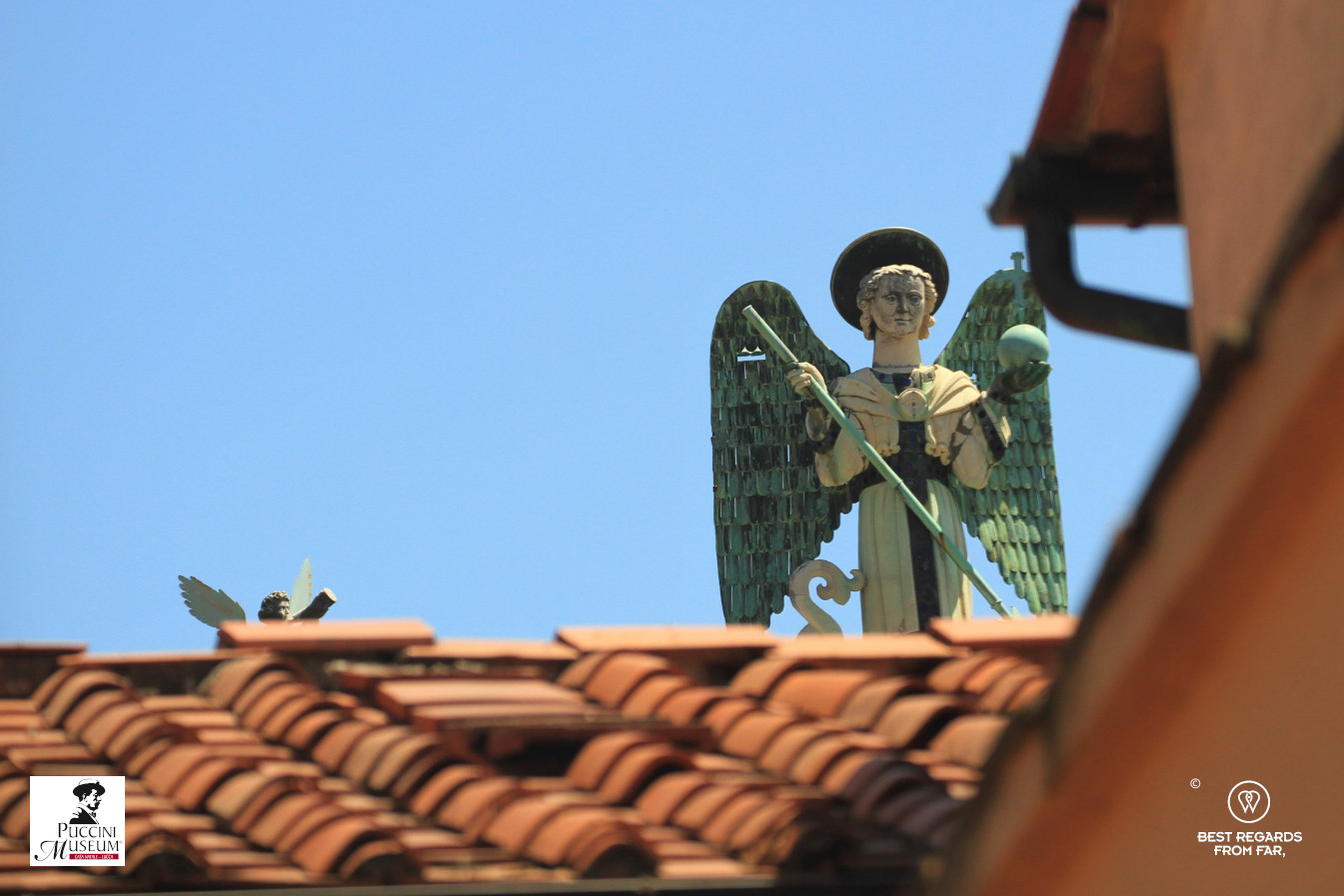
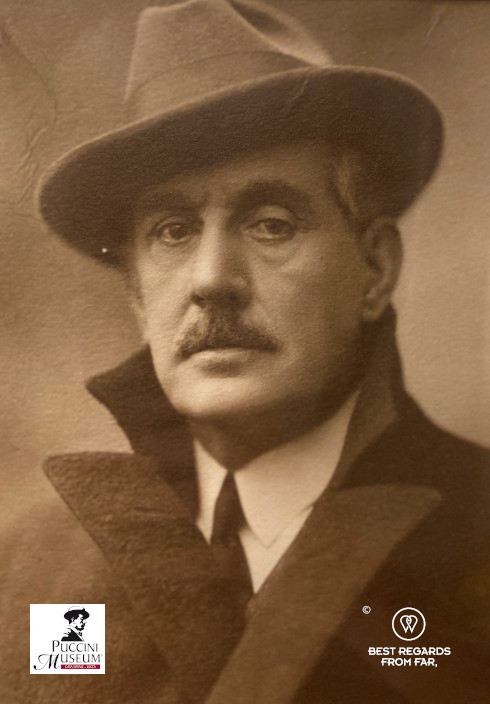


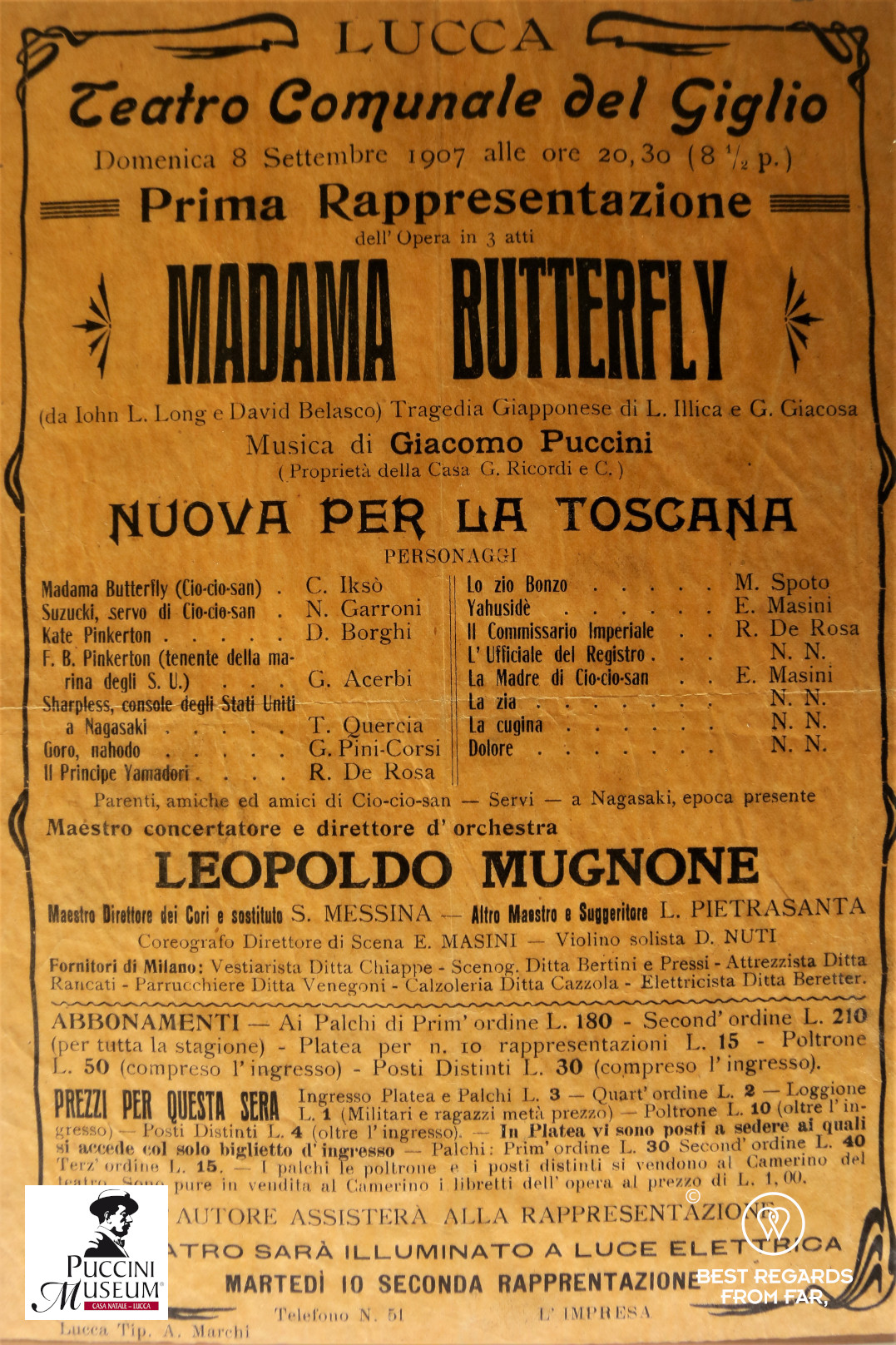
Puccini’s birth home [Lucca]
The Puccini family house on Corte San Lorenzo in Lucca has been converted into a museum and carefully decorated similarly to the way it was when Giacomo Puccini got born there with its tempera walls and precious furniture of a wealthy family of the time. Documents, postcards from all over the world (La Bohème took place in France, Tosca in Rome, Madam Butterfly in Japan, The Girl of the Golden West in the USA, Turandot in China, and he was a great traveller himself overseeing his opera productions in Europe, the Americas, Egypt…), original music scores and precious objects belonging to the composer have been gathered over the years by the Giacomo Puccini Foundation. One of the best pieces is the Steinway & Sons piano that Puccini bought in 1901 and on which he composed many of his works, including Turandot. The ivory of the keys has turned a bit yellow, a mix of sweat of the maestro when playing, and smoke from the 60 to 70 cigarettes and Tuscan cigars he was smoking a day… This may explain the laryngeal cancer that took him away at 66, in 1924.
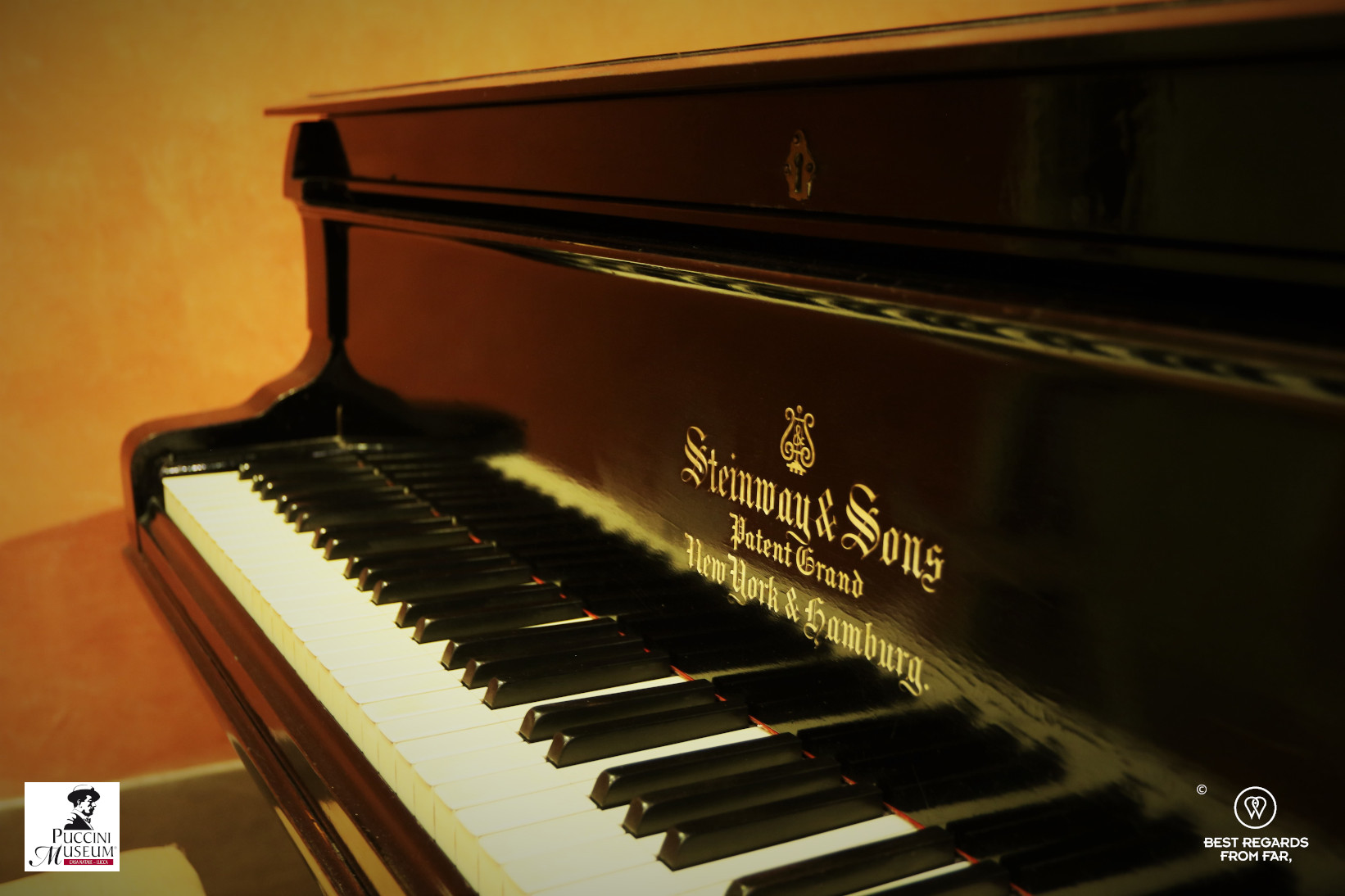


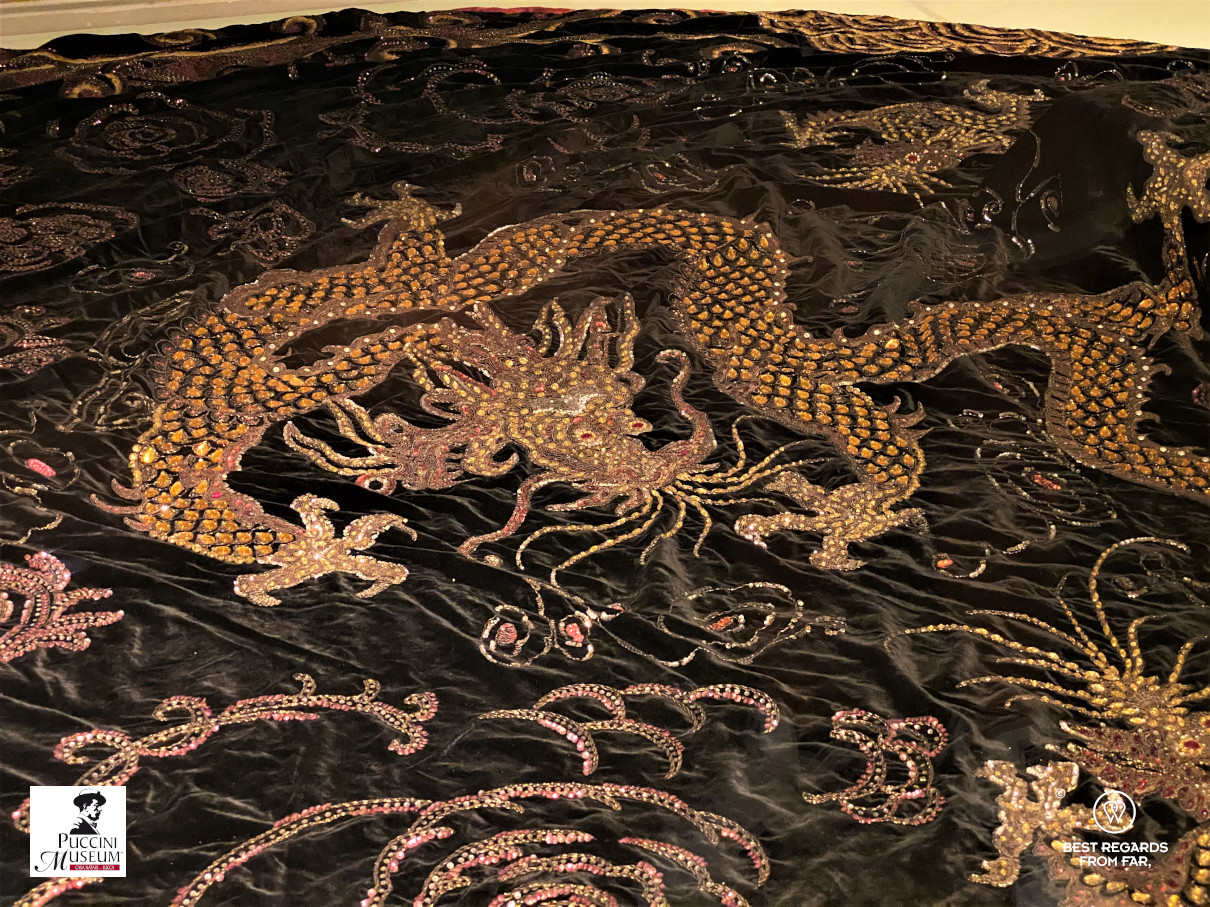


Puccini’s villa on the lake [Torre del Lago]
Puccini was teaching music to Elvira, the young wife of the prominent Lucchese Narciso Gemignani, when they fell in love. Puccini had to leave Lucca in fear of a bigger scandal: Elvira followed him shortly after to give birth to their son Antonio in 1886. They eventually got married after Narciso passed away, almost 20 years later.
Between this scandal in religious Lucca, the fact that Puccini loved hunting, and that he enjoyed privacy and isolation, he had a villa built about 20 kilometres away from the city along the shore of the Massaciuccoli Lake in Torre del Lago. Puccini was very attached to this Liberty-style home in which he chose most of the furniture and décor, and had all the modern comfort of the time installed.
He composed some of his most famous operas there, often at night after spending some time hunting on the lake: Tosca, Madam Butterfly, The Girl of the Golden West… Unfortunately, Puccini left his beloved Torre del Lago, disturbed by the implementation of a powerplant on the lake.
Today, Puccini and his descendants are buried in a small chapel in his house of Torre Del Lago that was also turned into a museum.
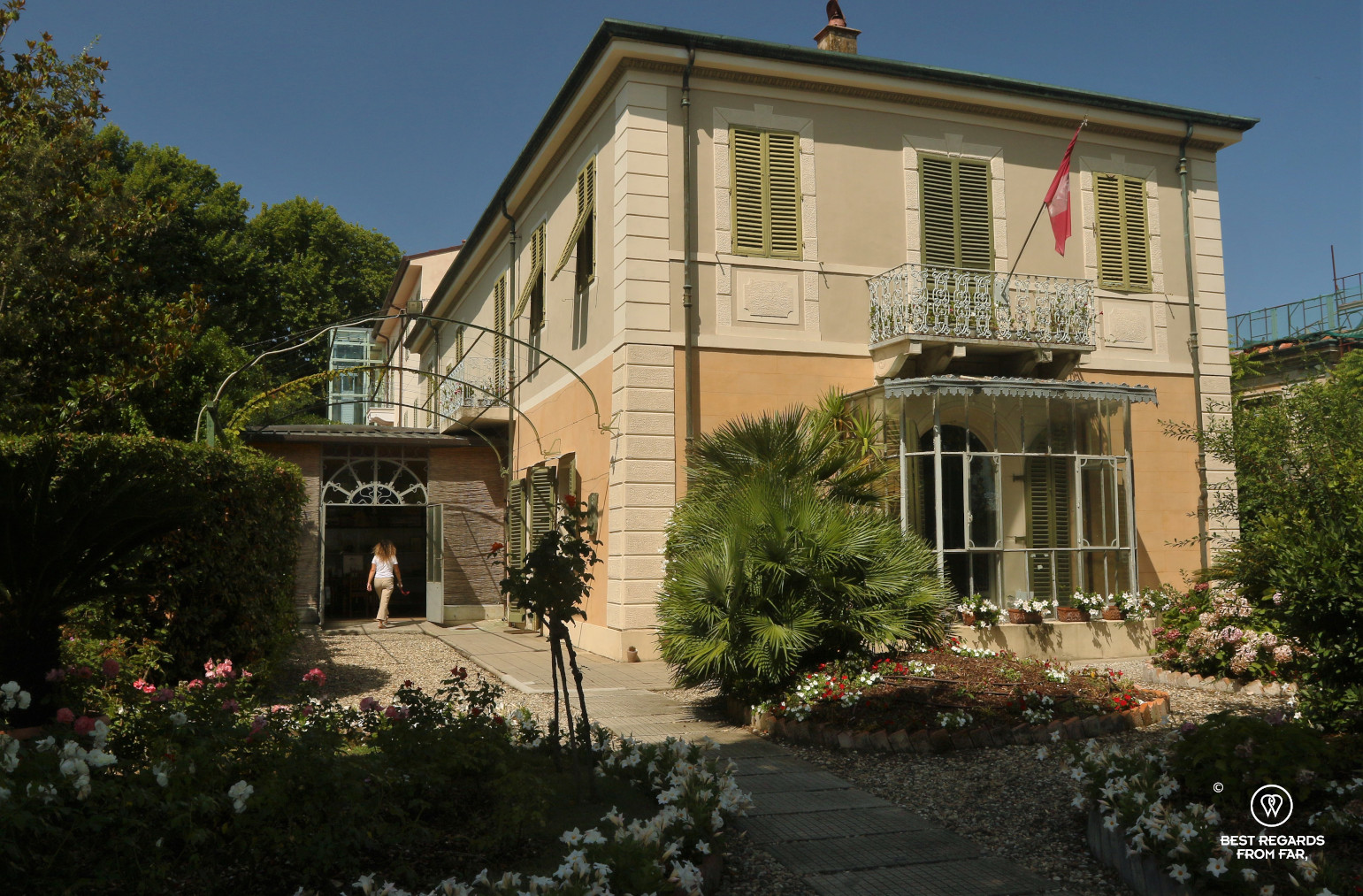
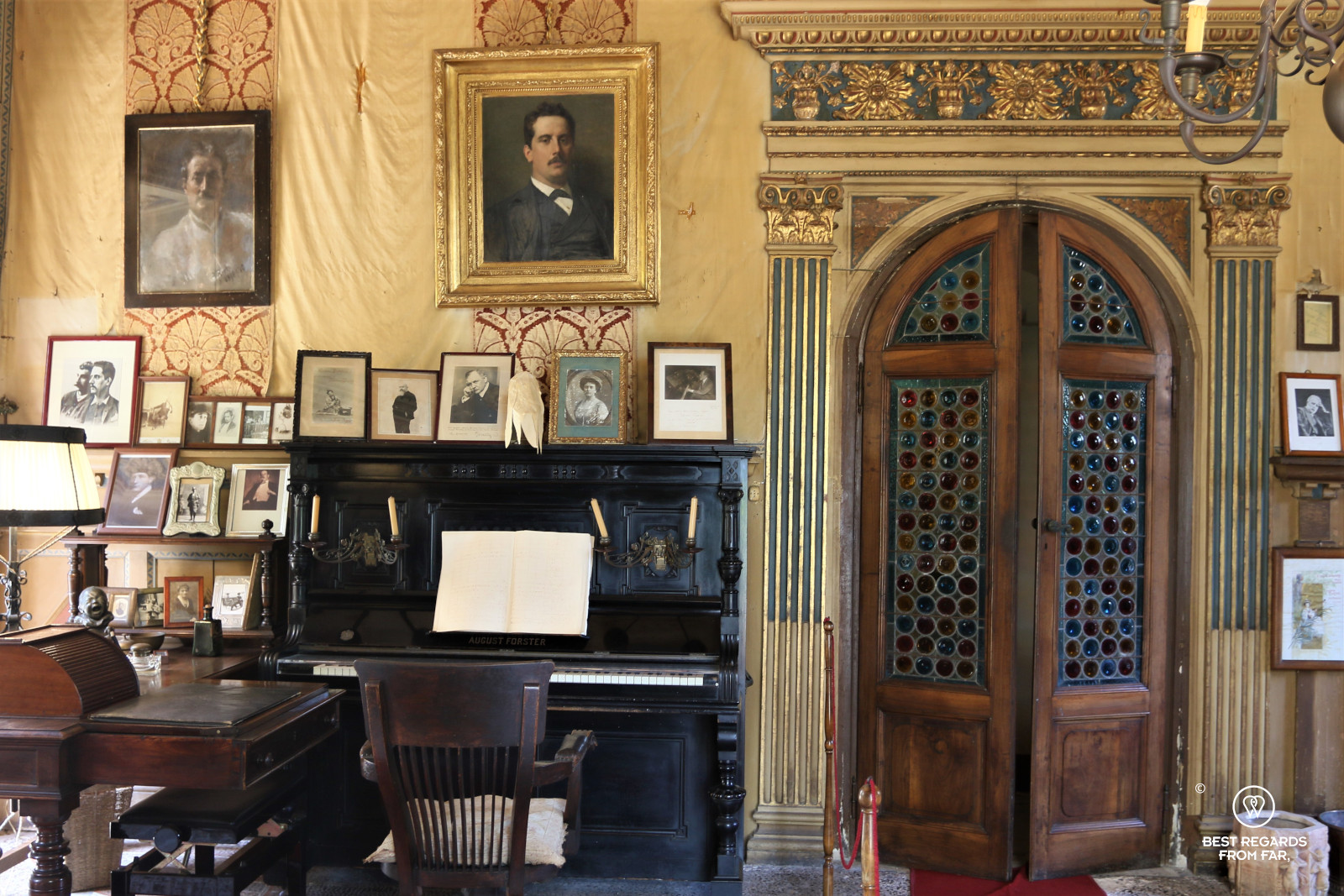
Strolling Lucca & meeting Puccini at every corner!
Beyond the conservatories he frequented, Giacomo loved enjoying the Lucchese dolce vita. The revered composer had his habits in town and one can follow in his footsteps:
- On the square at the foot of his birth house where his bronze statue presides, the Santini Gelateria used to be a milk store selling whipped cream during Puccini’s childhood. Try the “taste of Puccini” ice cream, with the delicious whipped cream of course, to taste some of his favourite!
- The maestro also enjoyed typical Lucchese dishes at Buca di Sant’Antonio. Today, it is the oldest restaurant in town dating back to 1782. The ground floor used to be stables for horses while customers would savour their meals downstairs.
- Puccini used to come to play and entertain important guests – some of which from the close by Saint Martin Cathedral – at the Albergo San Martino when he was a young man. The 16th-century pension became a brothel in the 18th century along Via del Bordelo (Brothel Lane). It operated until 1958 when the Merlin law forced all brothels to close in Italy, and was converted back into a hotel. Today, you can stay in one of the rooms named after the ladies who used to work here to follow the footsteps of the composer.
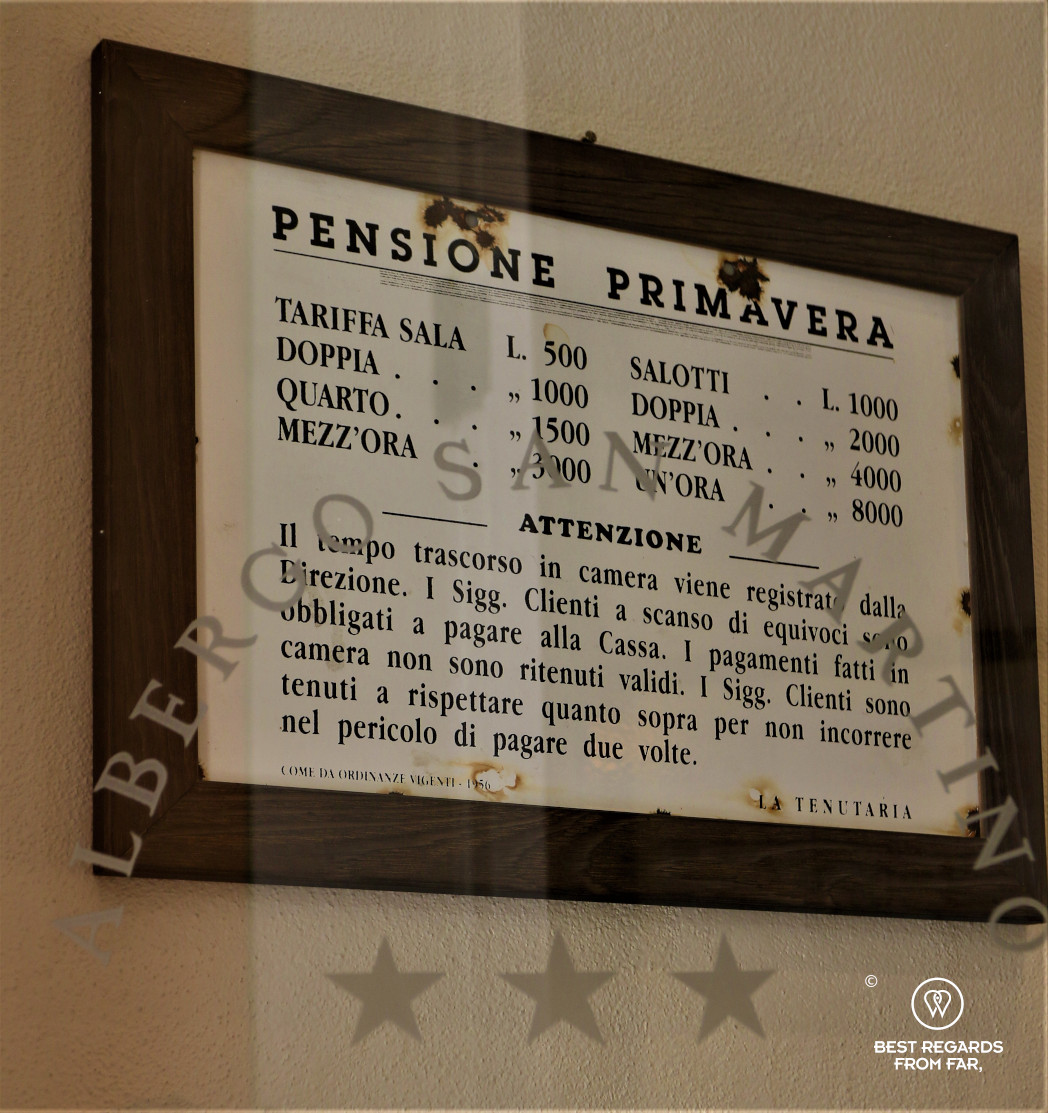
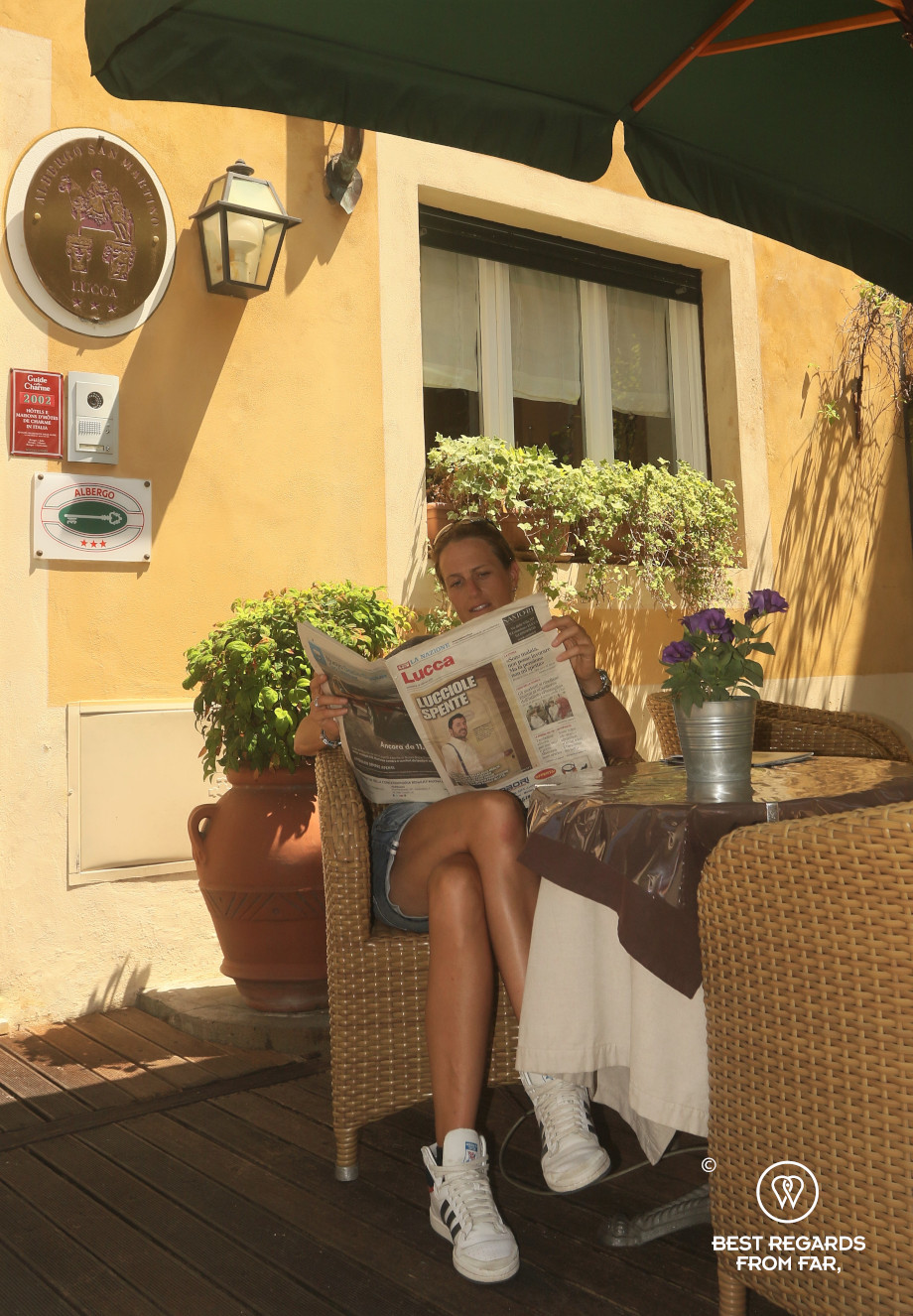
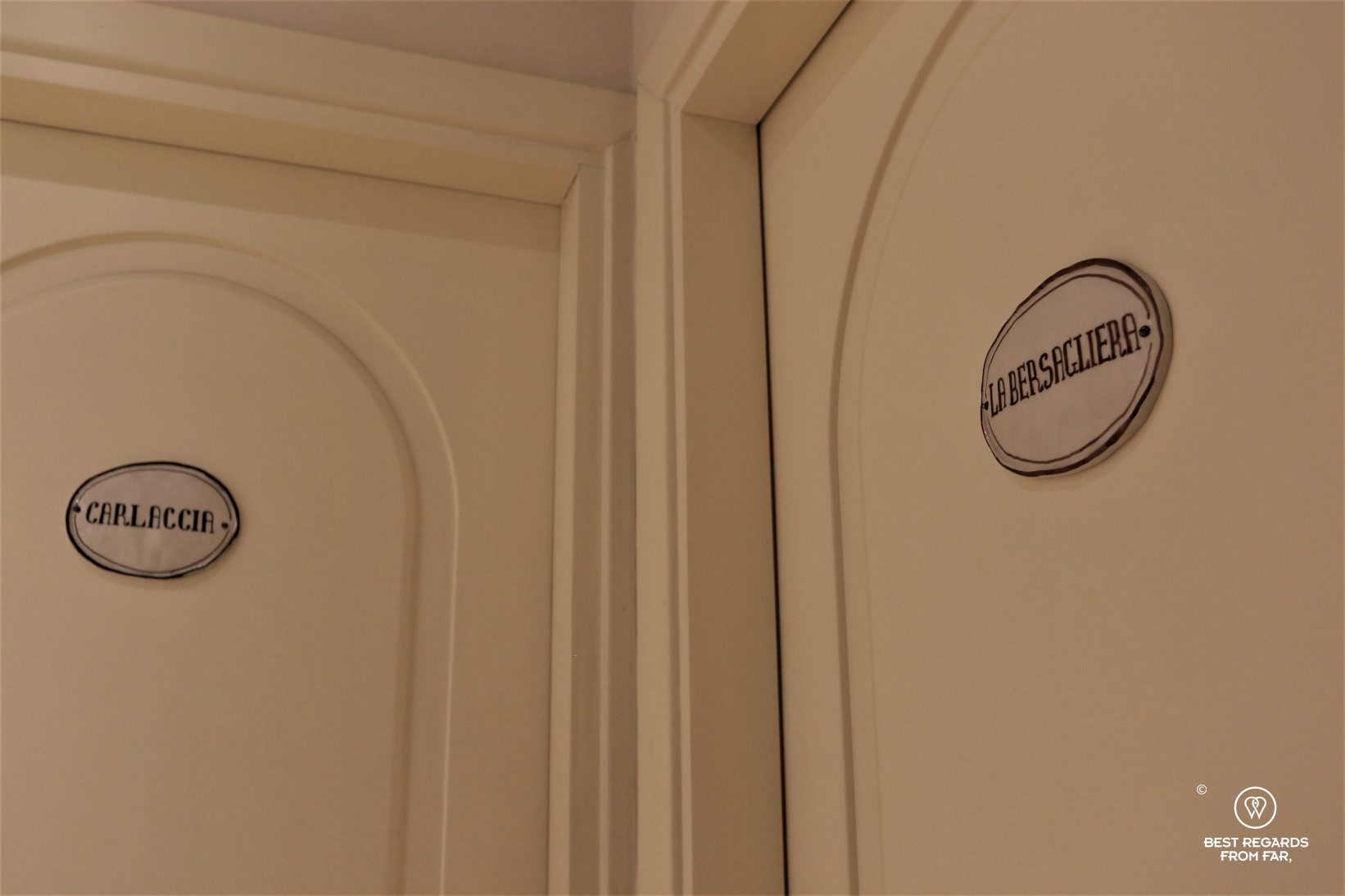

Listening to Puccini in his birth town
Puccini hovers in and around Lucca. There are several options to listen to the compositions of the maestro:
- Every night, a concert is held at the San Giovanni and Reparata Church. Since 2004, the conductor Andrea Colombini has been the artistic director and president of the festival Puccini and its Lucca. Enjoy some of the best voices of Italy resonating in the fabulous acoustics of the church in an intimate setting accompanied by a piano.
- The Theatre del Giglio, founded in 1675, was the cultural point of reference all over Tuscany back then. Later, Puccini had his reserved box to attend rehearsals and representations; the most famous of all the Madams Butterfly, Tamaki Mura, sang on this stage; more recently Pavarotti performed La Bohème there for the first time in the classical decor of the theatre. Check the program, as performances are excellent, and attending a lyrical music show at the historical Theatre del Giglio with a full orchestra is a wonderful experience.
- The Puccini festival has been hosting the operas of the composer close to his villa by the lake in the summer. The performances are also excellent, and for an outdoor stage, the acoustics are surprisingly good.

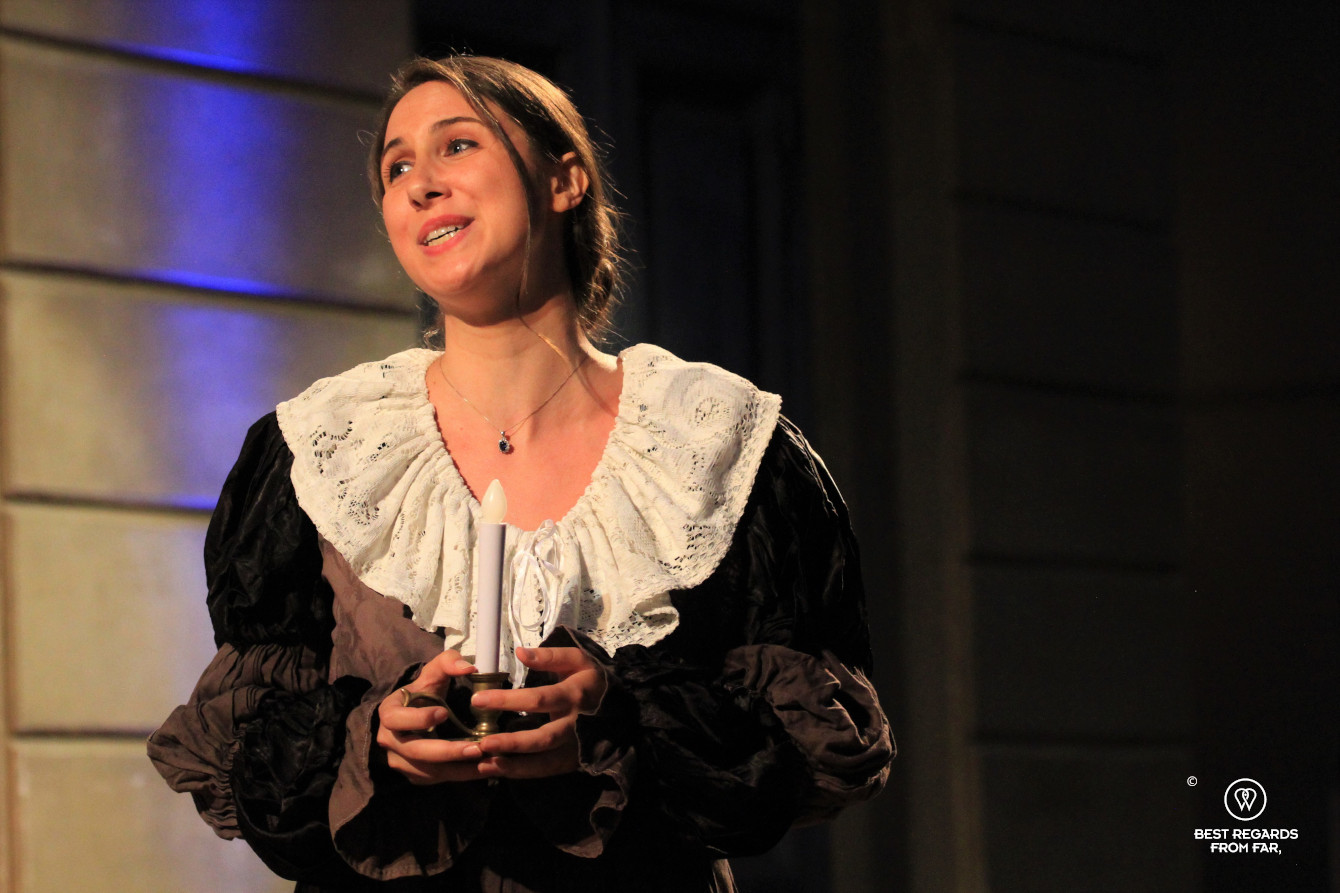
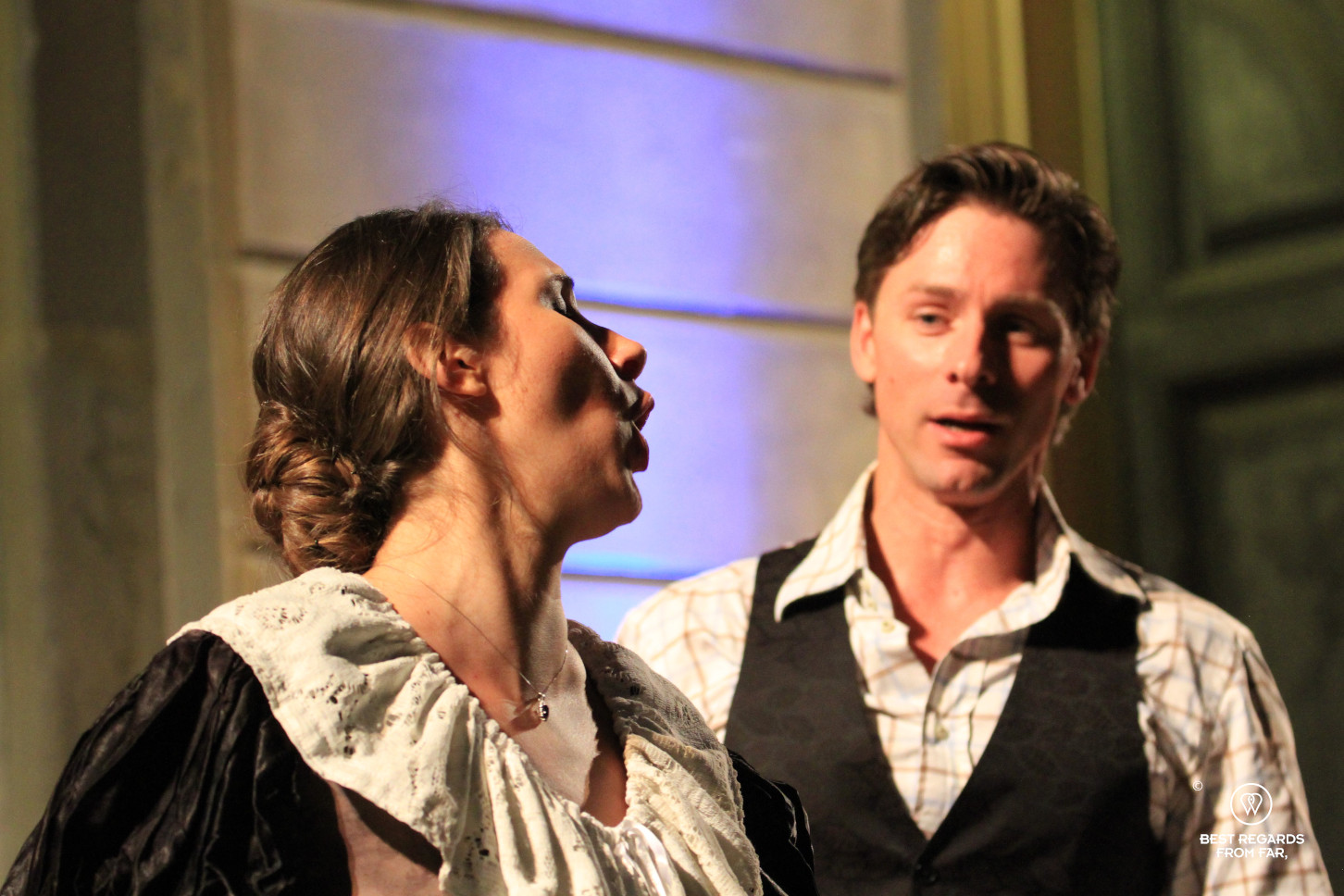
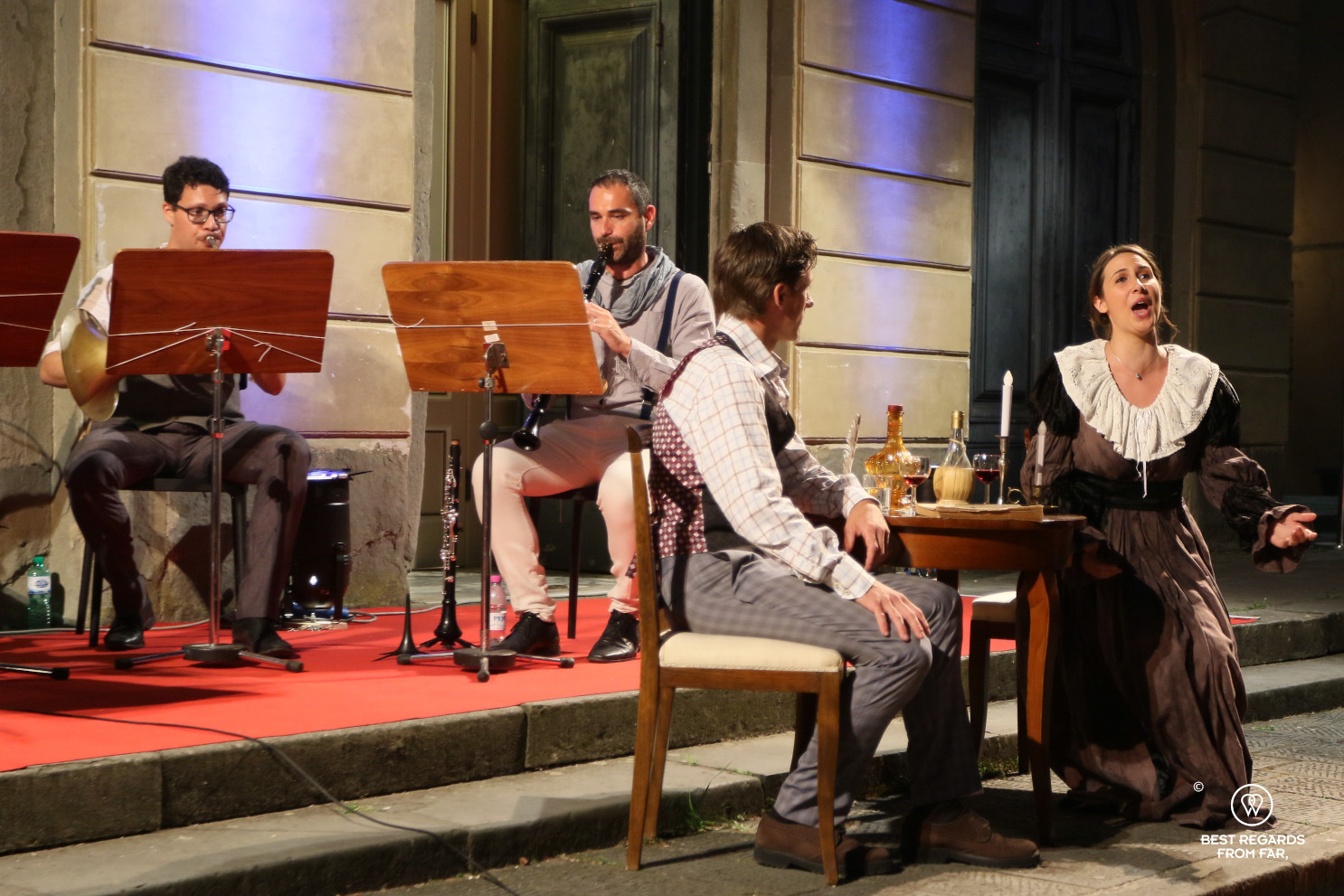

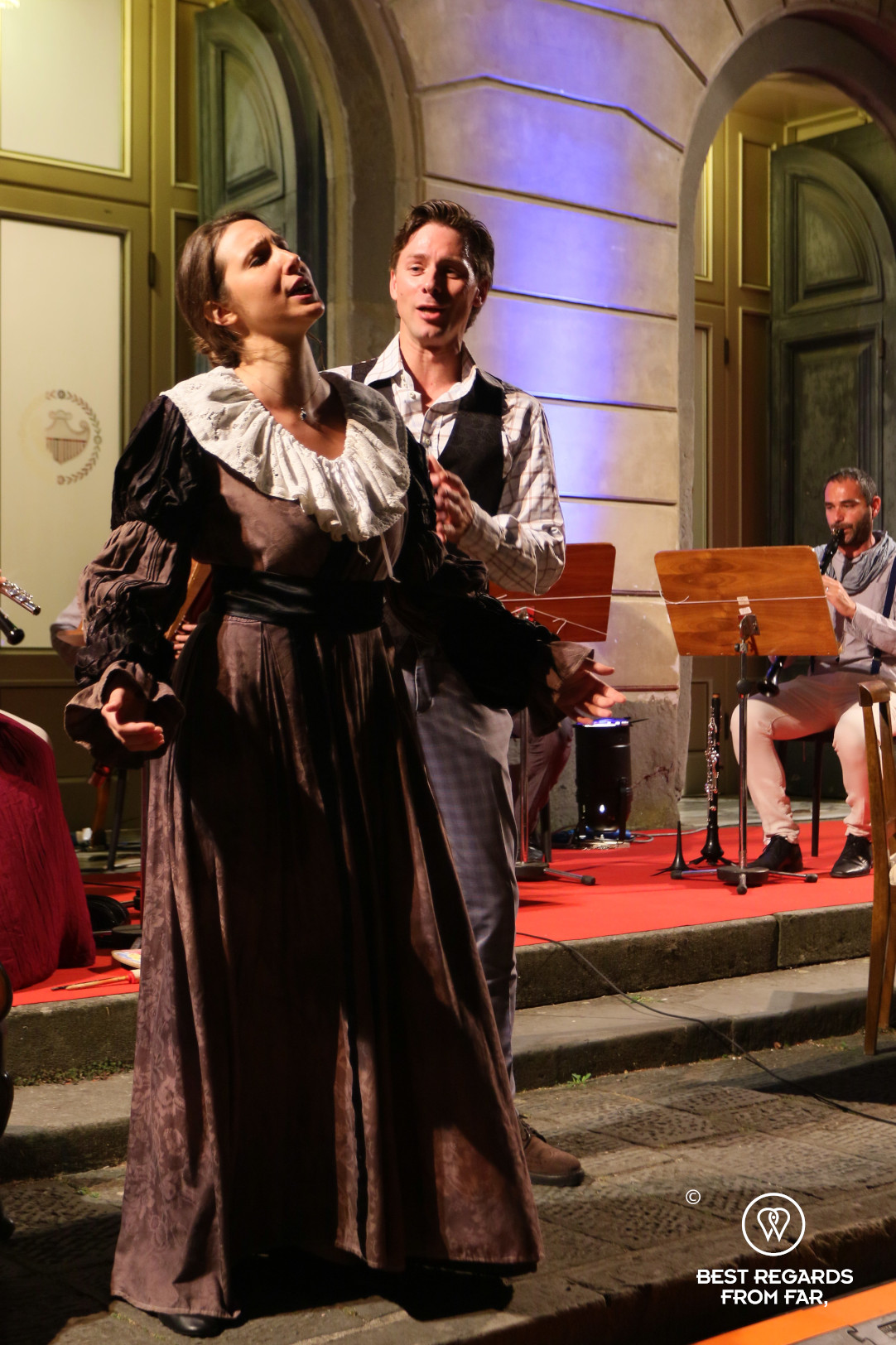
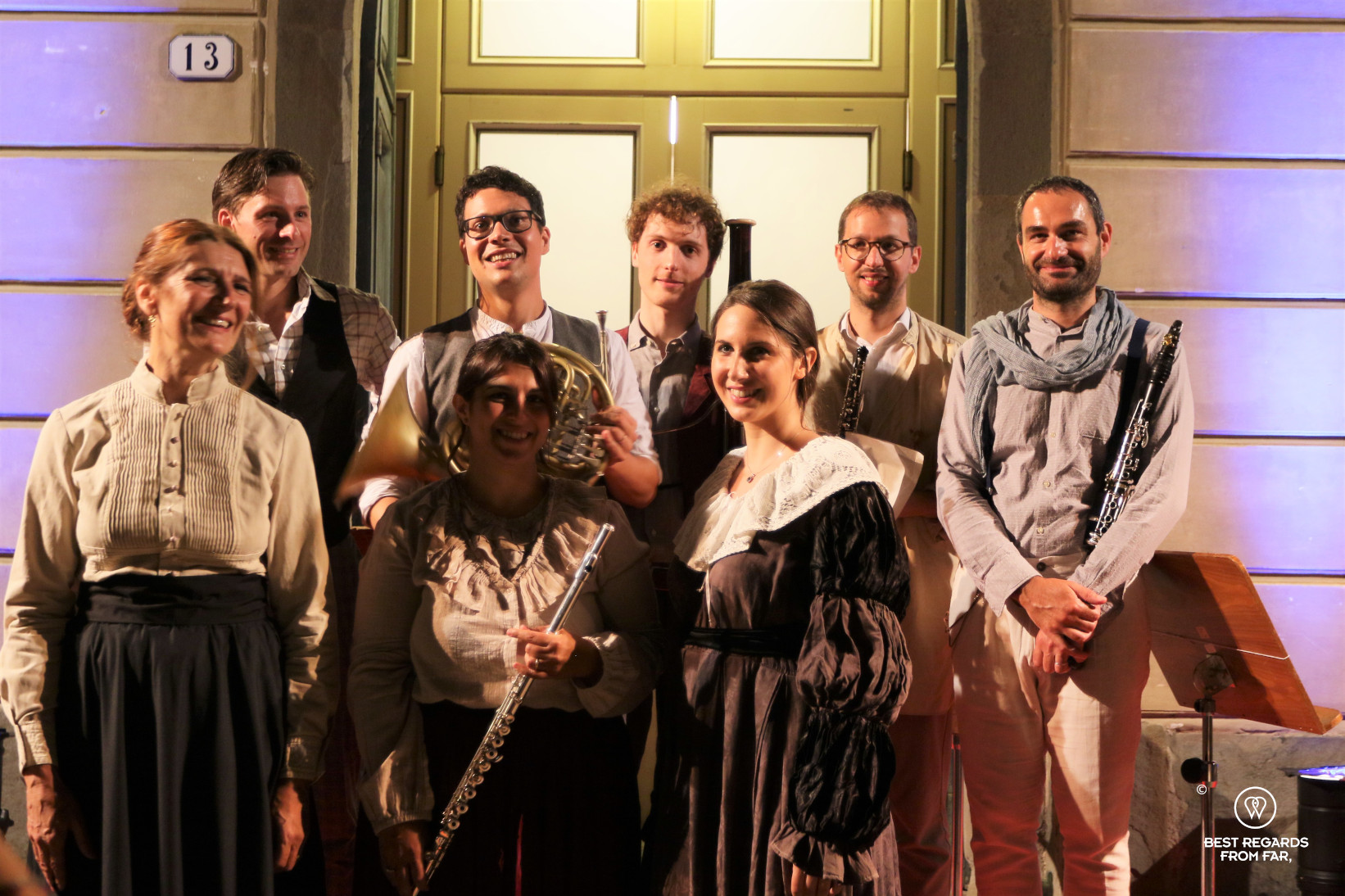


Puccini’s family ancestral home [Celle dei Puccini]
Jacopo (also named Giacomo) Puccini (1712-1781), the first musician of the family and Giacomo’s great great grandfather was born in the Puccini family home in Celle (later renamed Celle dei Puccini in honour of the famous composer), before relocating to Lucca. The young Giacomo Puccini used to spend his holidays in this 16th century house in the picturesque hamlet in the mountains, about 30 kilometres from Lucca. When he was 17, his widowed mother had to sell the house to support her nine children. Thanks to her husband, Giacomo’s sister Ramelde, bought back half of the property in Celle that Giacomo would visit occasionally. Donated by her daughters to the Lucchesi nel Mondo association, it has been turned into a museum showcasing original furniture such as the bed in which Giacomo was born, his crib, the piano on which Puccini composed part of Madam Butterfly, letters, music scores and family memorabilia. A particularly moving piece is The Gavotta, a music score written by Michele, Giacomo’s younger brother who died prematurely of the yellow fever in Rio de Janeiro at the age of 27 in 1891. On the score, hand written notes of Giacomo refer to Tosca: as a tribute, the composer reused the music written by Michele for the second act of his most famous opera.
Giacomo Puccini was very attached to Celle, so attached that about a month before his death, he made the trip to the Valley of Pedogna, through chestnut forests, vineyards and olive groves and visited his family home one last time as the exhibited original photos attest.
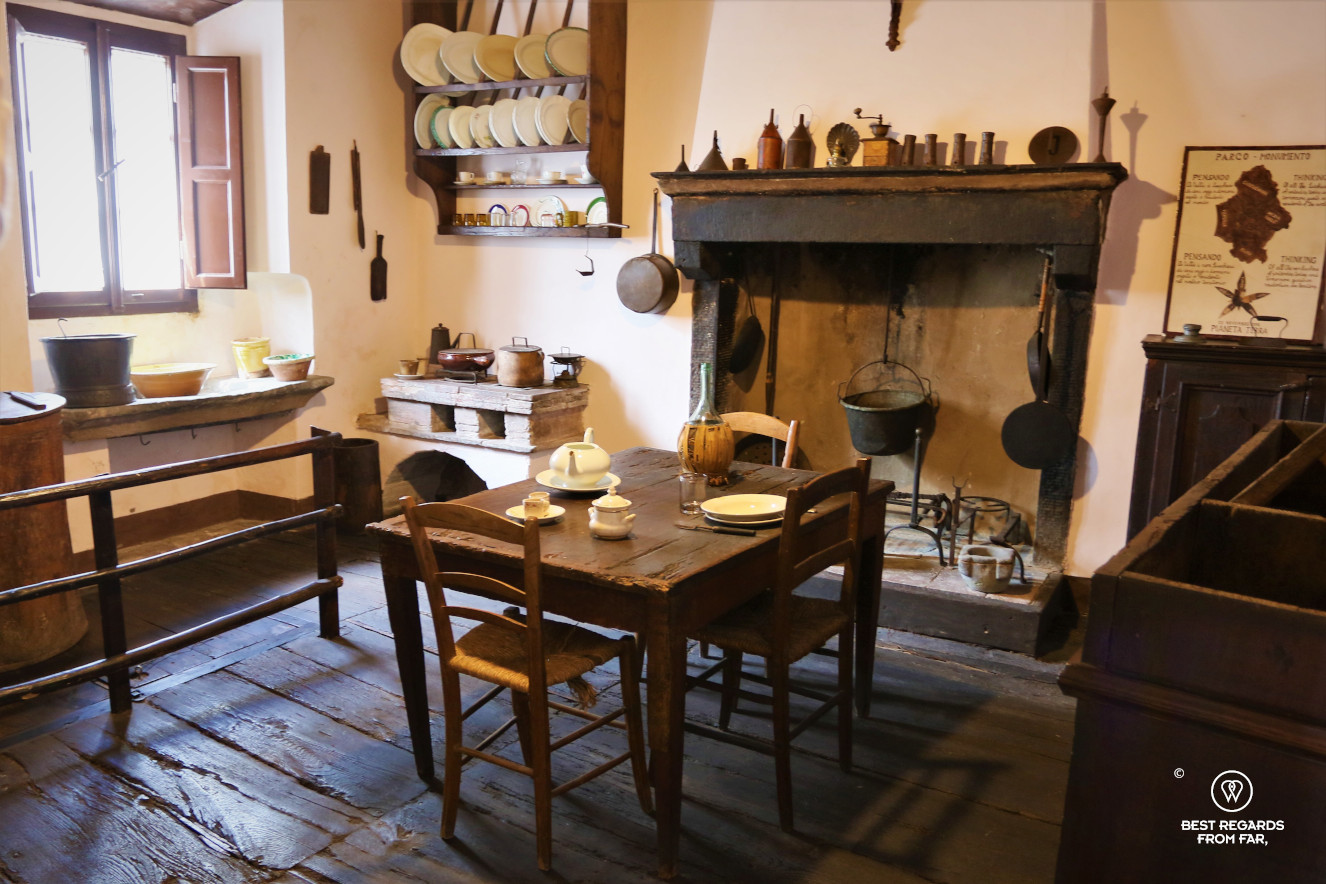
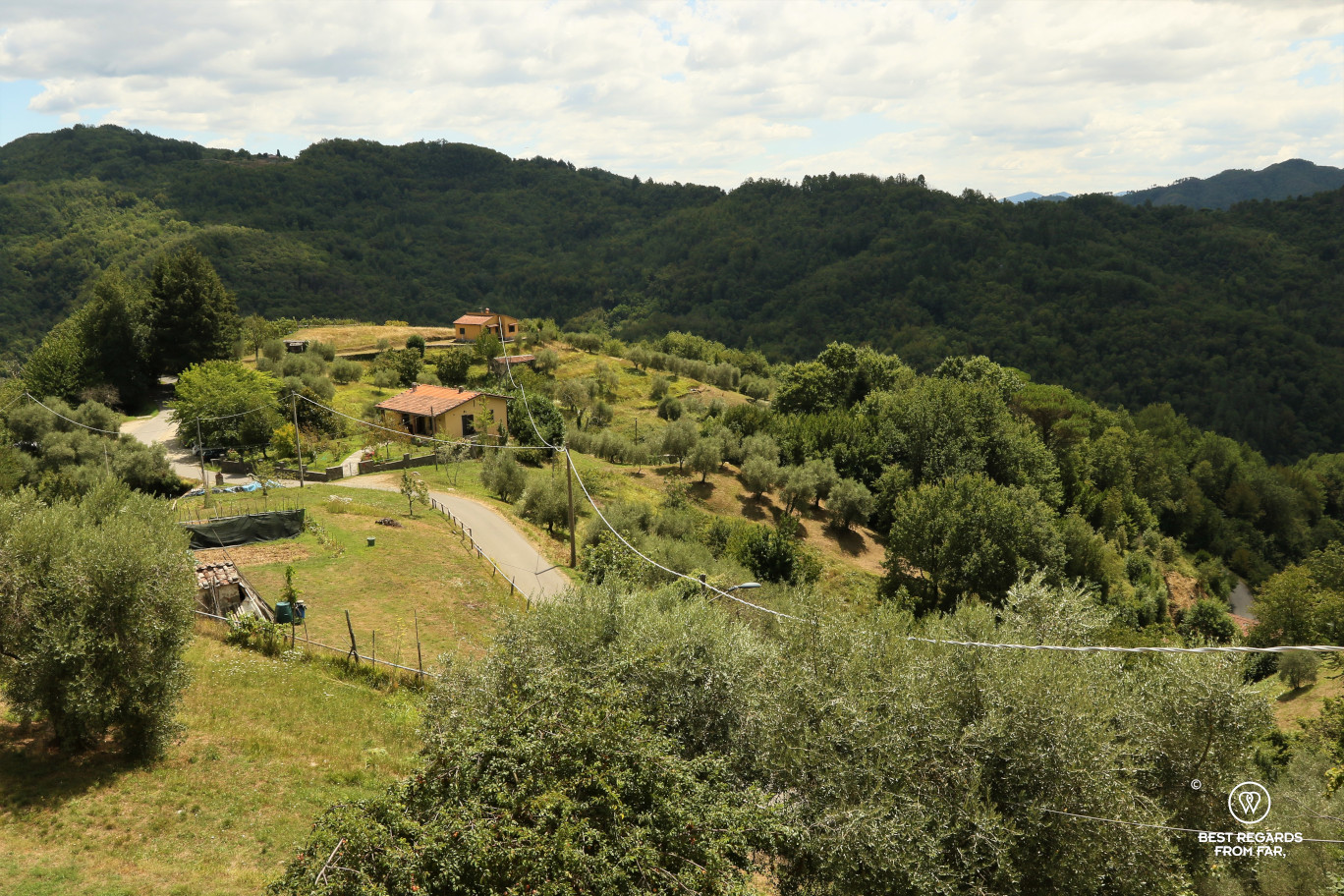
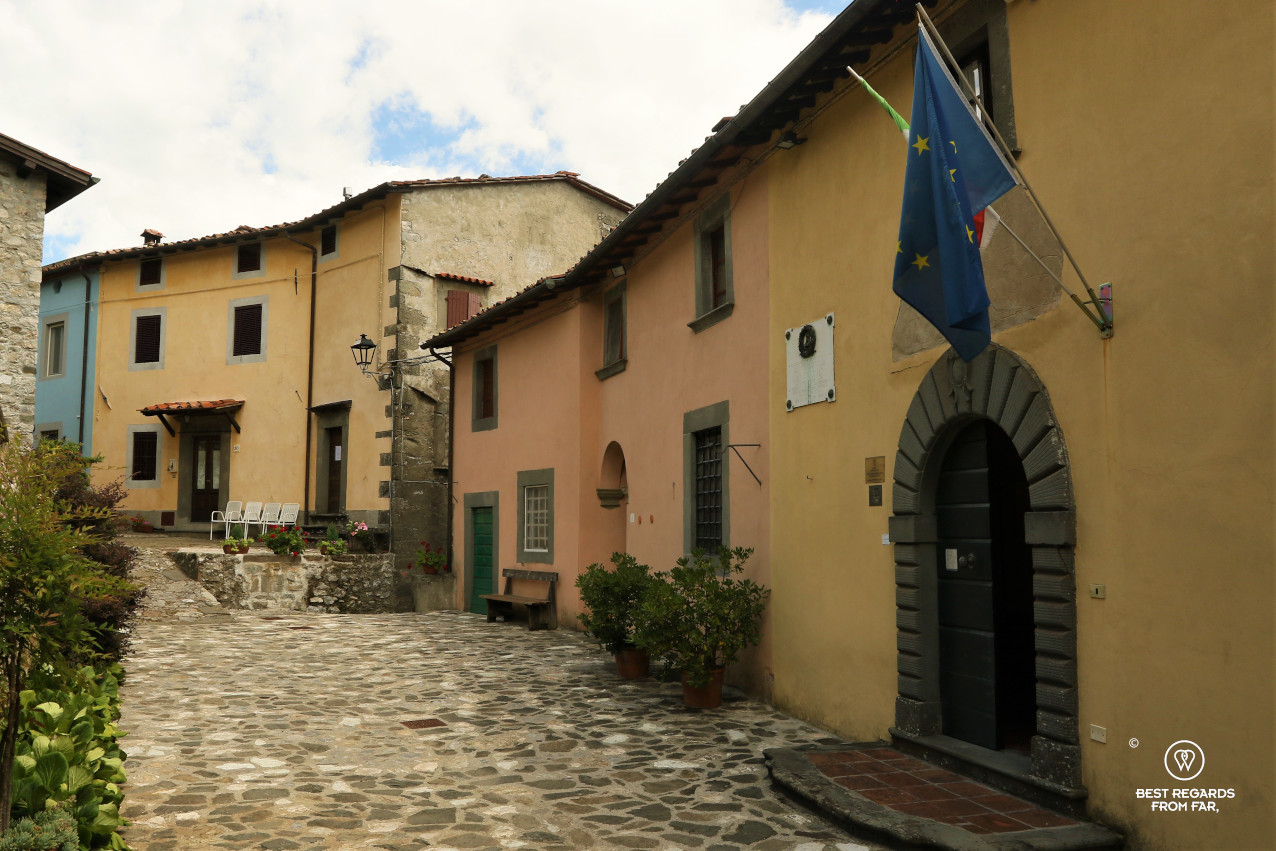
Puccini’s holiday destination [Bagni di Lucca]
Only half an hour from Lucca, Bagni di Lucca is a place where Puccini loved spending time. As a young man, he would stay in the single room of the Queen Victoria Hotel (today’s Park Hotel Regina), overlooking the restaurant on the opposite side of the street. Depending on who was sitting on the terrace, he would go down and hang out with wealthy women enjoying the cooler weather of the posh thermal resort. Later, he would regularly drive in his beloved car of the moment the beautiful road to Bagni di Lucca, a cluster for intellectuals and well-off tourists visiting the spas made fashionable by Napoleon’s sister and ruler of Lucca, Elisa Bonaparte. It is also in Bagni di Lucca that Puccini got the inspiration for his last and unfinished opera. While he was visiting Barone Fassini, a collector of Chinese antiques, the maestro was fascinated by a carillon playing the music of the Chinese imperial march. He asked the librettists Giuseppe Adami and Renato Simoni to visit him in the mountain resort and listening to the carillon they started working on Turandot on the piano in the common area on the first floor of today’s Park Hotel Regina. A journalist on holidays noticed the secrecy around the project, eavesdropped and published the scoop, to the great despair of the image-controlling maestro!
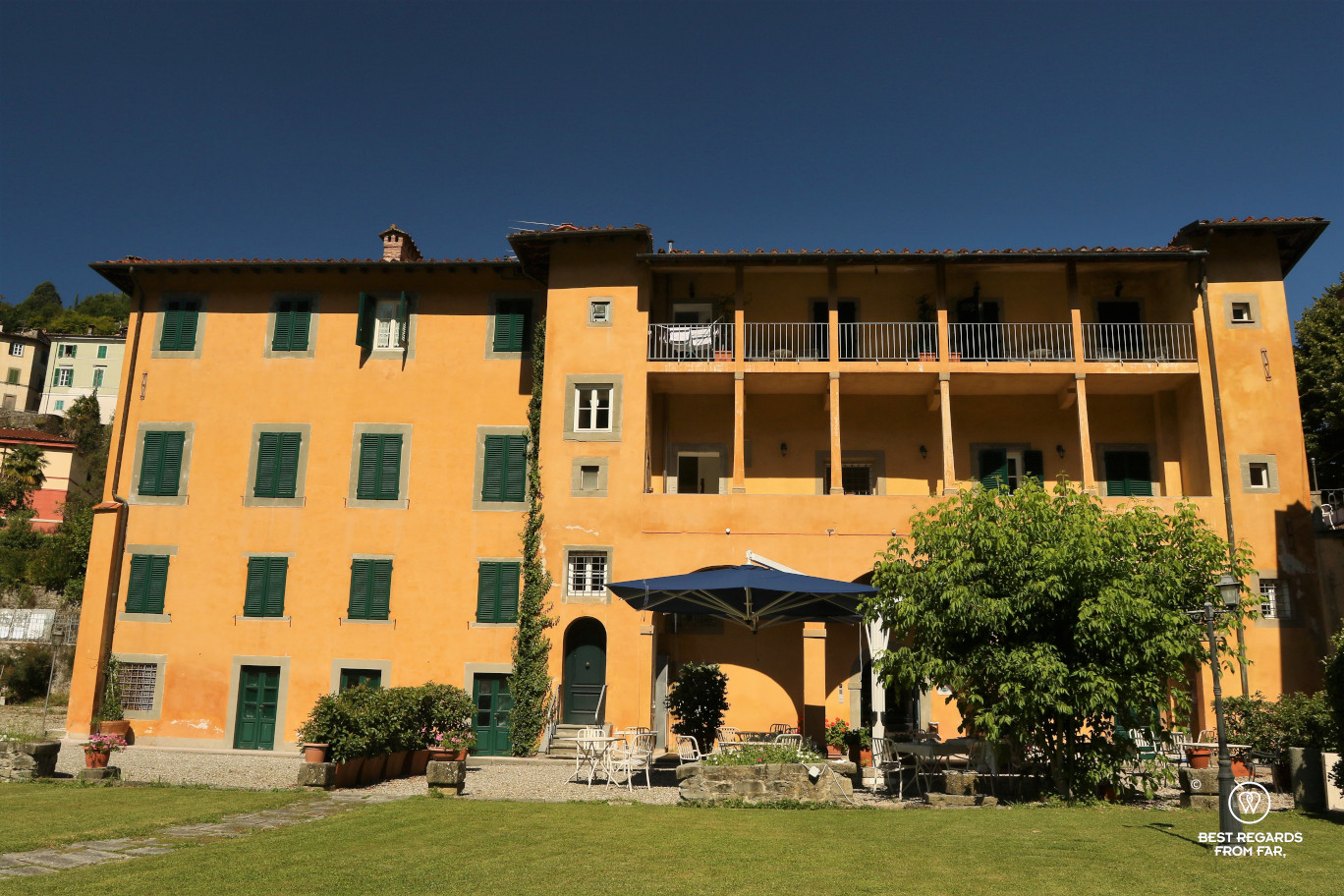
A few geeky Puccini details for the die-hard fans
Whether for music or advertising, Puccini was on the forefront:
- The Girl of the Golden West was the first musical in history with a 3-to-4-minute long music segment per song, a format that is still present in most pop tracks and rock music today.
- Puccini worked with brands as today’s influencers. The most striking example is the ever present Borsalino hat that he wore on most occasions. He had a similar agreement with Parker pens.
- Giacomo Puccini knew how to stage himself as shown on his movies shot in Torre del Lago and that can be watched in the auditorium of the ticket office of the Puccini birth house.
- A womanizer, Puccini was also a motorsport aficionado, owning no less than 15 cars over his lifetime, three motorboats and a yacht. He even got stuck on top of Devil’s Bridge between Bagni di Lucca and Lucca with one of his cars trying to show off on the steep medieval bridge!
Puccini wrote 12 operas, amongst which 8 are masterpieces. Every day in the world there are six operas by Puccini being performed! He is one of the most played composers. No visit to Lucca is complete without following the maestro. It does not mean however that the city lives only on the glory of its most famous inhabitant. Today’s conservatories, private music schools, summer masterclasses and music festivals with great line ups such as The Rolling Stones or Céline Dion are as many proofs that Lucca has striven to remain on the musical forefront.
Notes:
We would like to thank Luigi Viani, the external relation manager for the Fondazione Giacomo Puccini Lucca, for sharing his immense knowledge and passion about his hometown and Giacomo Puccini.
Travel tips:
- To visit Torre del Lago from Lucca, biking is an enjoyable ride along the Serchio River and through the marshes where the maestro used to hunt (see GPS track on the interactive map below).
- To follow the footsteps of the maestro, you can stay at Albergo San Martino, a 3-star hotel within the city walls of Lucca, and a stone’s throw away from the cathedral and the San Giovanni and Reparata Church.
- Want to have access to this article while walking the city? Download it through GPSmyCity and avoid roaming costs while exploring the city at your pace! Already have the app? Check the mobile version of this article here.
- Check out this interactive map for the specific details to help you plan your trip and more articles and photos (zoom out) about the area! Here is a short tutorial to download it.
For more around Lucca:

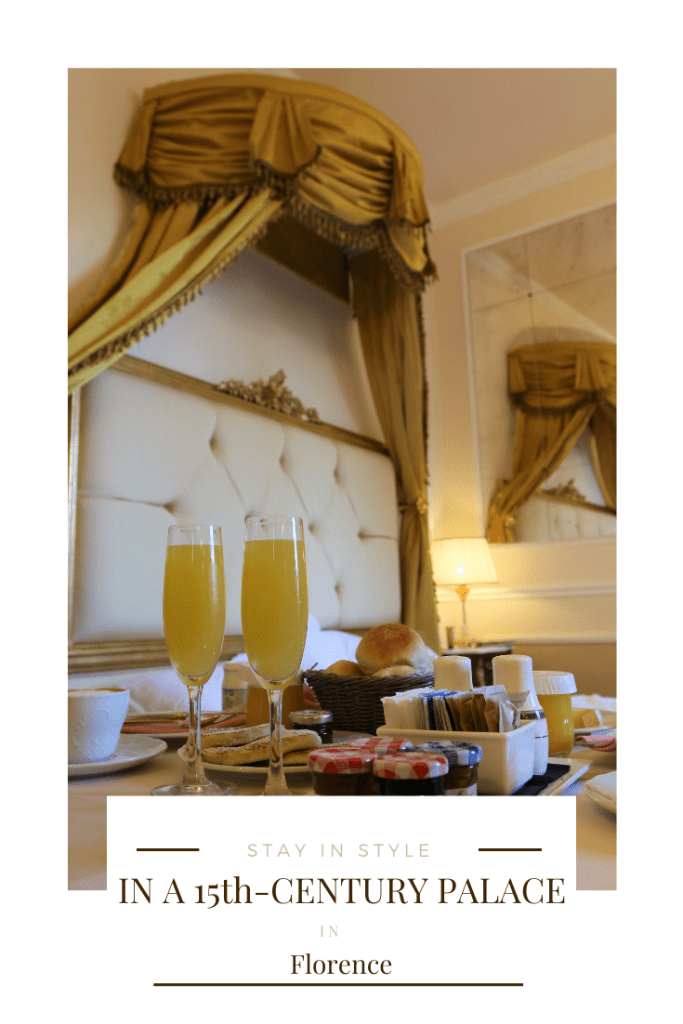
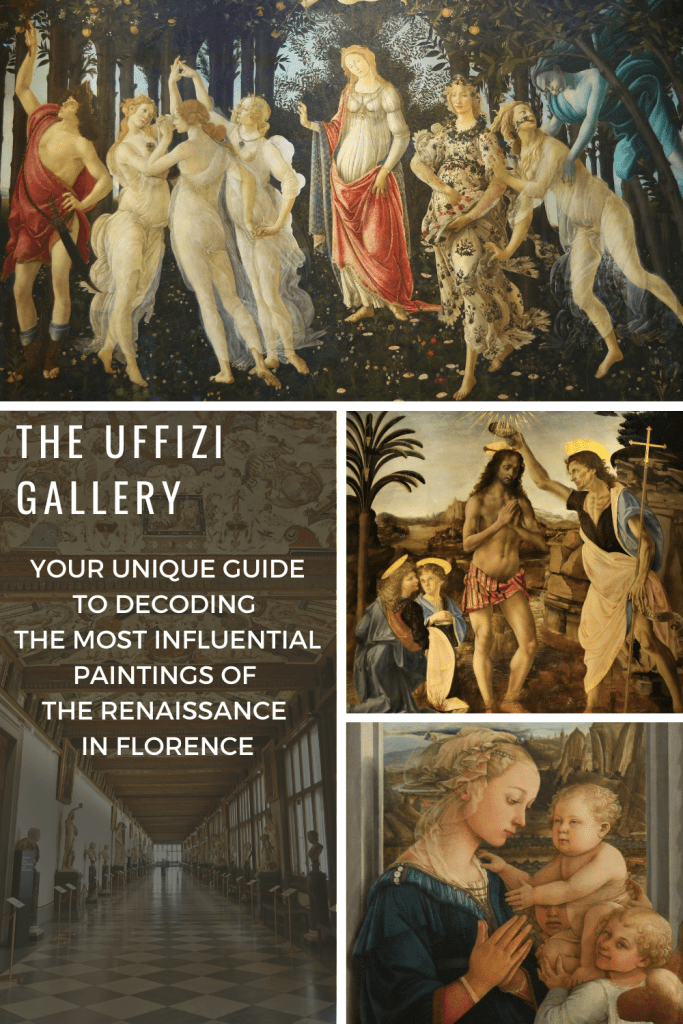



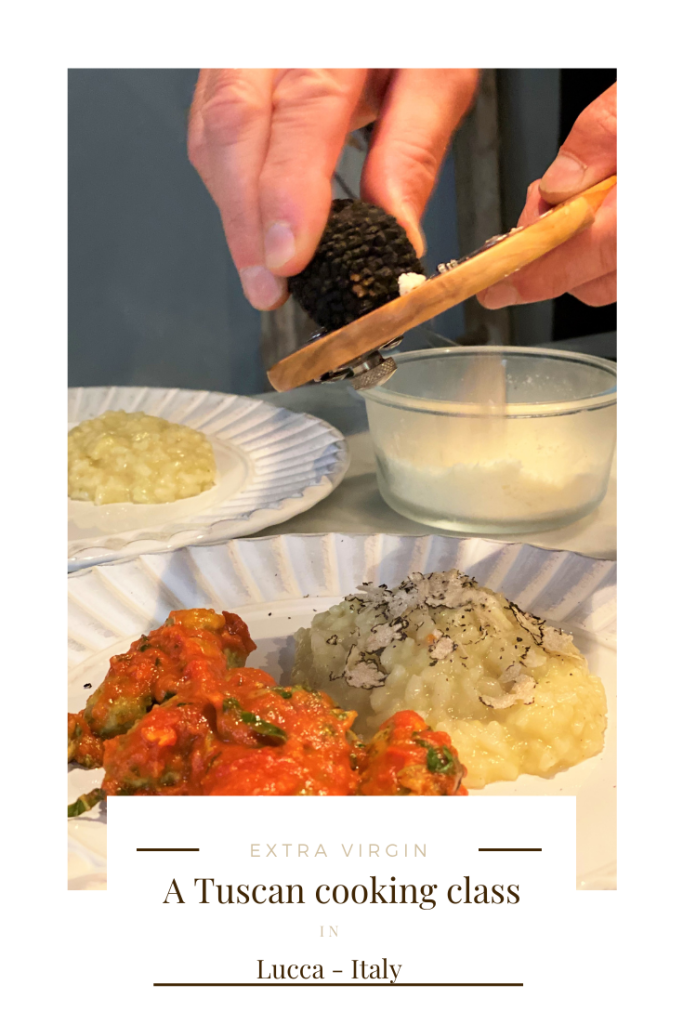





Great post, very informative and interesting!
Thanks a lot! Happy you enjoyed it. Following Puccini is a wonderful way of discovering Lucca 🙂
Will you have a similar post for Verdi?
It not currently planned, but thanks for the idea. Are you a fan?
I am a fan of both Verdi and Puccini.
Oh, wonderful. Italy is really a must for you! Have you ever visited Lucca?
I have never been to Italy, yet.
Well – you know where to go now 🙂 Stay tuned, we will be publishing some more articles about Italy and more specifically Tuscany & Liguria. This may make you want to make some plans once traveling from the US reopens…
Thanks for the connections to modern music and movies and for giving us so many tips for travel to the area to see the sites. An excellent post!
Thanks a lot 🙂 Happy you enjoyed the post.
Very interesting read – packed with references and information! Italy is one of my favorite destinations and the country i have visited the most in Europe (6 times and counting!) but i have never visited Lucca. Will be saving this!
Thanks! We had the hardest time leaving Lucca… and then we came back to explore the Bagni di Lucca area. It’s really worth visiting and spending some nights within the walls to soak in the atmosphere. Are there areas of Italy you have explored more specifically?